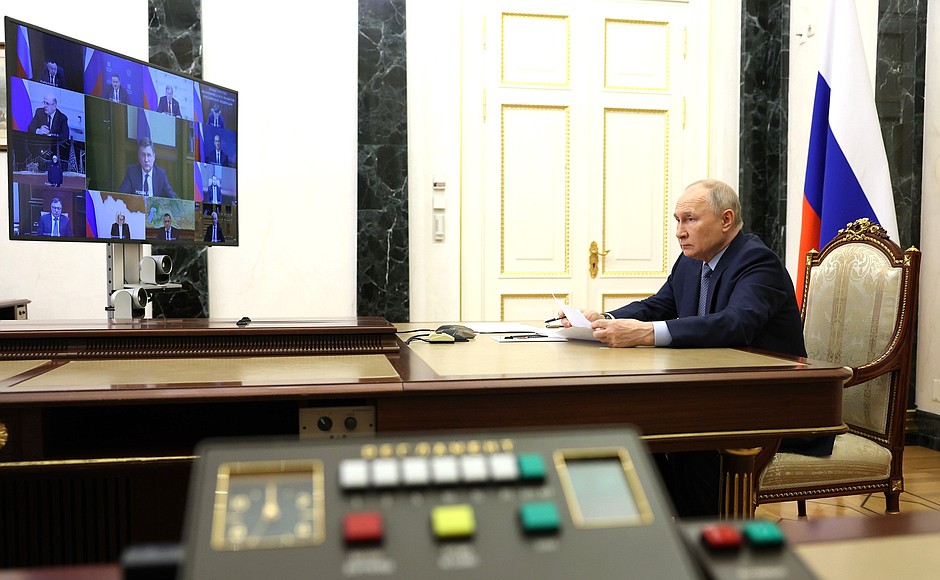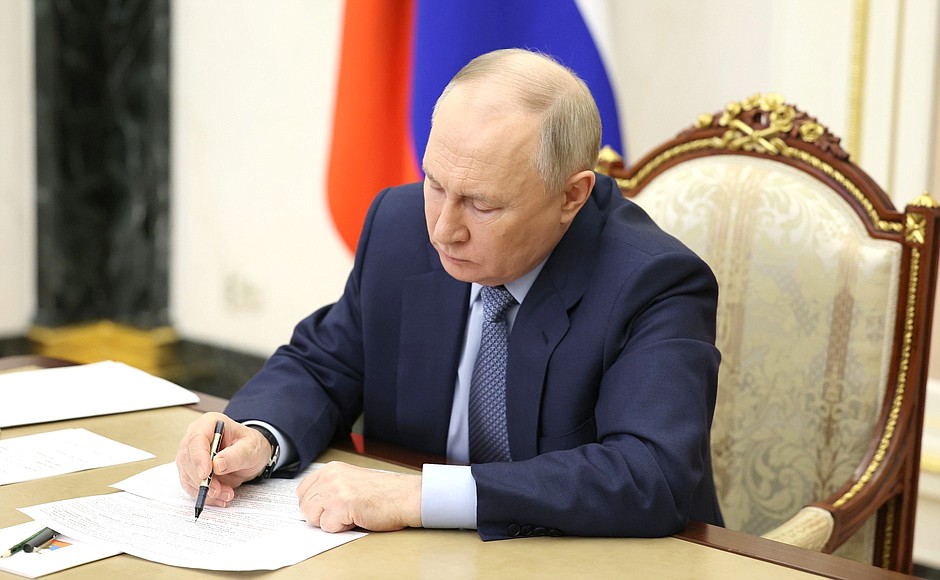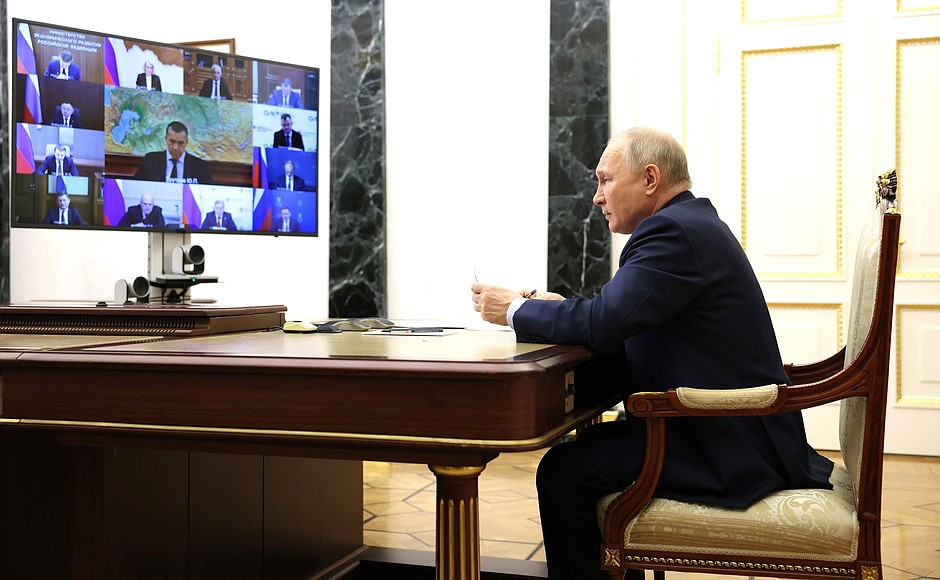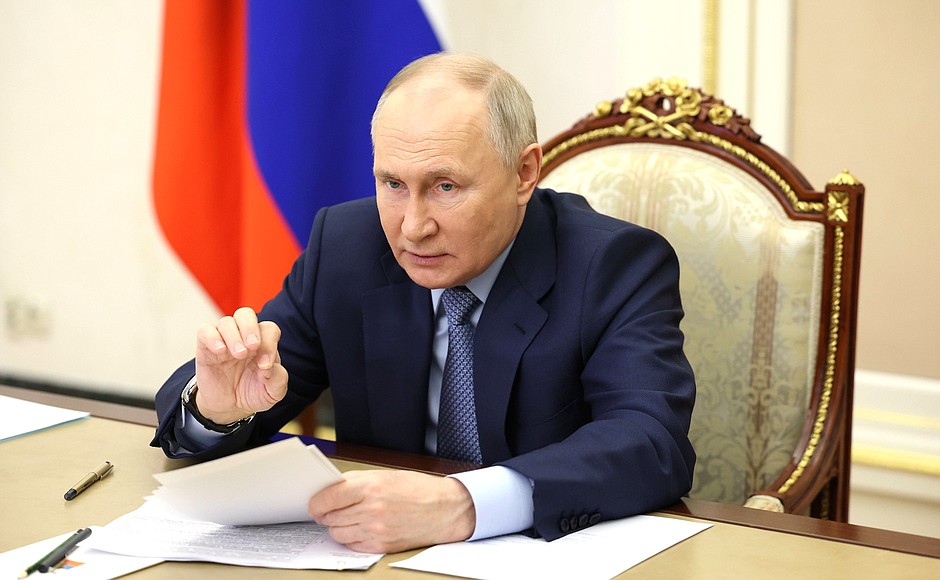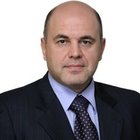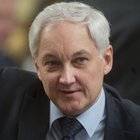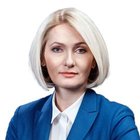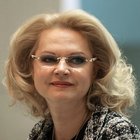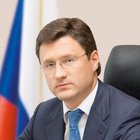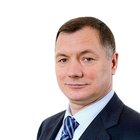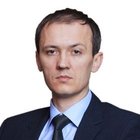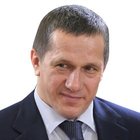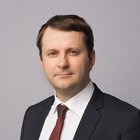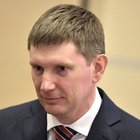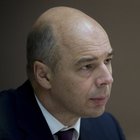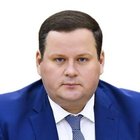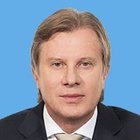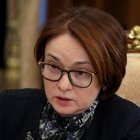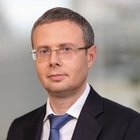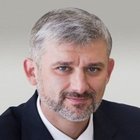The meeting was attended by Prime Minister Mikhail Mishustin, First Deputy Prime Minister Andrei Belousov, deputy prime ministers Viktoria Abramchenko, Tatyana Golikova, Alexander Novak, Alexei Overchuk and Marat Khusnullin, Deputy Prime Minister – Chief of the Government Staff Dmitry Grigorenko, Deputy Prime Minister and Minister of Industry and Trade Denis Manturov, Deputy Prime Minister – Plenipotentiary Presidential Representative in the Far Eastern Federal District Yury Trutnev, Presidential Aide Maxim Oreshkin, Minister of Economic Development Maxim Reshetnikov and Finance Minister Anton Siluanov.
Also invited to the meeting were Minister of Labour and Social Protection Anton Kotyakov, Minister of Transport Vitaly Savelyev, Minister of Construction, Housing and Utilities Irek Faizullin, Central Bank Governor Elvira Nabiullina, Head of the Federal Anti-Monopoly Service Maxim Shaskolsky, General Director of the State Transport Leasing Company Yevgeny Ditrikh, General Director of Rosseti Andrei Ryumin and Director-General of the United Aircraft Corporation Yury Slyusar.
* * *
President of Russia Vladimir Putin: Good afternoon, colleagues,
We discussed several issues with the Prime Minister and other colleagues in the morning, and now we will talk in a broader format and on a specific issue that is important for the economy and our people – the transport sector.
But, before we start, let’s discuss some current issues. The first one concerns the development of the Eastern Operating Domain. It is also more or less directly related to what we will be discussing, although we will mostly talk about aviation. But it is also part of the transport sector.
In this context, we must increase freight figures in the Far East. This year, the total should be 180 million tonnes, reaching 210 million tonnes by the end of 2030.
To reach these targets, we must resolve a number of issues, including the electrification of the Eastern Operating Domain. We have definite plans and are working toward this.
Mr Novak, how far along is this work right now?
<…>
(Deputy Prime Minister Alexander Novak said that in accordance with the Presidential Executive Order to increase the capacity of the Baikal-Amur and Trans-Siberian railways to 180 million tonnes, the Government was implementing a large programme to supply electricity to the Eastern Operating Domain. It includes electrification of almost 4,000 kilometres of railways. In order to fulfil this task, there are plans to build and upgrade a number of large power facilities in the Republic of Sakha (Yakutia), the Irkutsk Region, the Primorye and Khabarovsk territories. Total investment in building and upgrading of energy infrastructure amounts to 1.4 trillion rubles. The construction of energy infrastructure will meet the requirements of the Eastern Operating Domain and the railway infrastructure, while also facilitating the socioeconomic development of the Siberian and Far Eastern regions by providing an opportunity to link projects to new capacities in spheres such as oil and gas, petrochemicals, extraction of minerals and precious metals, as well as the timber industry and other sectors.
Mr Novak’s report was supplemented by Rosseti CEO Andrei Ryumin. He spoke in detail about the implementation of the large-scale project to supply electricity to the Eastern Operating Domain, which is the largest in the power grid complex in recent decades.
Vladimir Putin: First of all, I congratulate you and all the specialists who have been working and continue to work on this section. This work is not only important for the transport sector and the development of railways, but for the people living in eight Far Eastern regions: Buryatia, Khakassia, the Trans-Baikal, Krasnoyarsk, Primorye and Khabarovsk territories, the Irkutsk and Kemerovo regions. This work makes it possible to significantly increase capacity and improve the reliability of the power supply to towns in all these regions.
What is the temperature now, what is the weather like?
Andrei Ryumin: In the morning it was minus 20. Now it seems warmer, minus 15, probably something like that.
Vladimir Putin: I understand that people were constantly working in harsh conditions, so a big thanks to them and all the best. Good luck.
And a question for Mr Kotyakov. On 1 January, the decisions taken earlier in the social sphere also became effective. They include an 18.5 percent increase in the minimum wage – 19,242 rubles, a 7.5 percent increase in the unified allowance for families with children and pregnant women, as well as the insurance pension of 31 million non-working pensioners.
Starting 1 February, more than 40 different benefit amounts for almost 20 million people have been indexed at 7.4 percent. This includes the maternity capital for the first child, it is now 630,000 rubles, for the second child – 833,000 rubles.
Mr Kotyakov, has all this really worked, is it being implemented, are these benefits being paid? Can you tell us about everything that is happening in this area?
(Minister of Labour and Social Protection Anton Kotyakov said that the adopted three-year budget provides all the necessary resources for indexation of social benefits and a number of insurance payments, and also gave specific data on the main measures of support and indexation of various benefit payments. According to the minister, the coverage of support measures in Russia has increased tenfold over 20 years. For example, today 12 million children receive assistance from the state every month. According to the latest data from the Federal Service for State Statistics, real wages increased 7.7 percent in 2023. This is largely a result of the established labour market and increased demand for human resources, especially in the manufacturing sector. Overall, unemployment is now at record lows and the number of employed people increased by 1.6 million over the year.
According to Anton Kotyakov, this active involvement of citizens in the economy has become possible, among other things, thanks to the State Employment Service. Employment centres work with enterprises on a targeted basis. Almost all major companies are among their clients: Russian Railways, Rosatom, KamAZ, Kalashnikov and many others. All processes have been transferred to the unified digital platform Work in Russia. In total, the employment service helped over 1.4 million people apply for jobs during the year. This was mainly in manufacturing, construction and the social sphere.
The minister also spoke about employing special military operation veterans. The law provides a guarantee to keep a job, and there is an opportunity to undergo free retraining. Last year, 13,500 veterans and family members of fallen heroes were employed. Each veteran and family member of fallen heroes is provided with personalized support using all available resources and opportunities of the employment service).
Vladimir Putin: Another pressing issue. We have noted the efficiency of the construction sector: housing construction has broken the overall record, with over 110 million square metres built. But there is another area, which is much more modest at first glance but nevertheless important for people: I mean the programme for creating a modern urban environment in small towns and historical villages.
Last year alone, 14 million people took part in this programme. We did the right thing at one time by involving people in voting for those projects – small, modest, but very necessary and important to people – to improve the territory of adjacent courtyards and so on. From March 15 to April 30, there should be another public contest, another vote.
Mr Faizullin, what is being done in this respect?
(Minister of Construction, Housing and Utilities Irek Faizullin said that according to sociological research, 89 percent of Russian citizens are aware of this programme. In general, over 111,000 individual urban areas have been improved since 2017, including 34,541 public spaces and 76,769 courtyards. The project gives residents the opportunity to take a direct part in improvement efforts. In 2021, more than 9 million people voted for one public space or another, in 2022, that figure exceeded 10 million, and last year 14.2 million people, including 134,000 residents from the new regions, took part in the voting.
The improvement contest, which was launched in 2018 at the first Forum of Small and Historical Towns, became an annual significant event to support the most promising and innovative projects. Since 2018, ten contests have been held, including two in the Far Eastern regions, where 1,027 integrated projects have been selected from 712 municipalities, and 694 projects have already been completed.
Currently, 1,225 towns and villages are potential participants in the contest, which is more than 40 million people throughout the country. Last year, people in the Lugansk and Donetsk people’s republics and the Zaporozhye Region took part in the contest: they submitted 31 entries, of which eight became winners. These are projects in the cities of Krasnodon, Stakhanov, Volnovakha, Snezhnoye and Berdyansk. Work will begin this year.
The minister thanked the President for the decision to extend this programme until 2030.)
<…>
Vladimir Putin: Colleagues,
As I said in the beginning of this meeting, I suggest that we dwell on a matter of special importance for our transport sector and for everyone in Russia, as well as for making the country more interconnected and raising the quality of life for our people. We will discuss efforts to develop air travel, as I have already said.
Last year, Russian air carriers served over 105 million passengers, up 10.7 percent year-on-year, which exceeded our expectations since we projected a figure of about 103 million people.
Almost 83 million people took domestic flights, and passenger traffic in this segment increased 13 percent compared to the pre-pandemic level of 2019.
I would like to thank our air carriers, their crews and people working at the airports for this result and for their coordinated work. Let me add that the fact that we achieved this level in terms of passenger traffic means that our regions and cities are becoming increasingly popular as tourist destinations, and that our economy has been operating on a stable footing.
Of course, we need to keep this momentum going in the aviation sector and to make sure that this extremely important element of modern transport continues to develop. Considering how vast Russia is, as we all know, and its huge territory, this is doubly important, if not more.
Therefore, apart from projected passenger numbers, at this meeting I would like to hear what kind of measures we have in store for improving infrastructure in the aviation sector, as well as for expanding and upgrading our air fleet. This is not an easy task, as I am fully aware, but still, we must be proactive, while also ensuring that air travel is more affordable for our people.
I would like to emphasise the importance of airfares. It is essential that we prevent excessive price hikes without compromising service quality or flight safety. This must be a priority for air carriers, the Ministry of Transport and other relevant agencies.
Next. We are developing airfield infrastructure, including runways, communication stations, weather stations and equipment. In the past six years, 33 pieces of infrastructure have been completed and opened in Russia, including 19 runways. Thirteen more facilities will be opened before the end of this year.
I would like to ask you to report specifically on further plans to strengthen airfield infrastructure, considering its current state, and plans to develop aviation operations, including domestic and inter-regional operations. I also expect to hear proposals on funding mechanisms for this type of projects. It is important to make sure that the additional financial load does not result in airfare hikes.
Of course, we are focused on developing civil aircraft engineering here in Russia. I have already mentioned it briefly. It is a serious and technology-intensive industry that requires special attention. Only several countries in the world are capable of releasing modern aircraft, and Russia is one of them.
We have ambitious plans ready. Please tell me about their progress. I certainly know the general state of the industry; however, the goal of this meeting is to concentrate on several issues that need our particular attention. Therefore, I would like to hear about cooperation in engine technology and the manufacturing of other modules, materials and components. Also, I would like to know more about the delivery timeline for the airplanes.
We already have certain plans mapped out and I would like to hear about their progress.
I want to stress once again that Russian aircraft must comply with all existing standards concerning quality, flight comfort and safety. They must have globally competitive technical specifications and be delivered to airline companies as agreed and without delays.
Once again, our aviation industry, our citizens and our economy need these planes. I expect that the Government, Rostec, our aircraft manufacturers and financial bodies will work together effectively.
Let’s begin. We have two speakers today, Mr Savelyev and Mr Manturov.
Please, go ahead.
